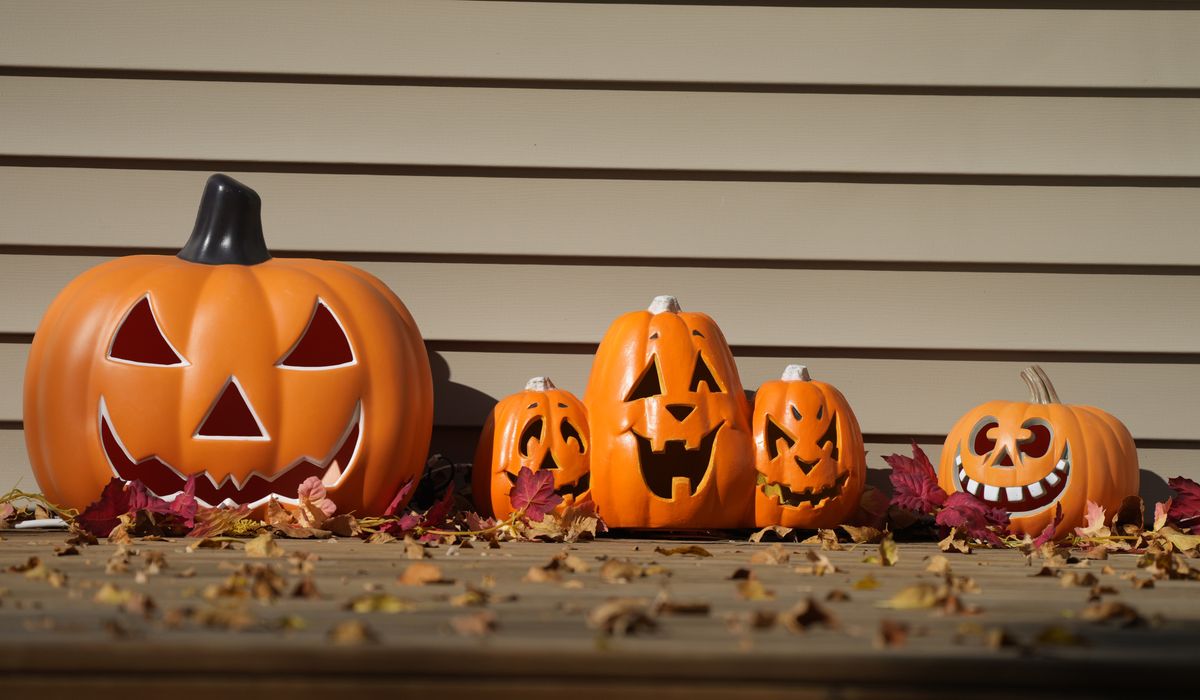
A handful of elementary schools across the country are canceling Halloween celebrations because some activists and administrators say the spooky holiday is unfair to poor children, minority families and “marginalized” cultures.
The holiday’s monsters and masks leave some youngsters “frightened,” a group of Michigan principals said while pulling the plug.
Critics say Halloween is just the latest front in an ongoing culture war.
“There’s a war on families, American values and everything that gives people joy,” said Kimberly Fletcher, the founder of the educational nonprofit Moms for America.
“This is a misery campaign where government officials are doing everything they can to make people as miserable as possible,” she told The Washington Times on Tuesday.
On Oct. 12, conservative talk show host Jason Rantz reported for KTTH Radio that Benjamin Franklin Elementary (B.F. Day) in Seattle’s Fremont neighborhood canceled its annual Pumpkin Parade. The school explained to parents that Black children did not celebrate Halloween and families of color felt left out.
“Historically, the Pumpkin Parade marginalizes students of color who do not celebrate the holiday. Specifically, these students have requested to be isolated on campus while the event took place,” a school spokeswoman told Mr. Rantz in a statement.
In Michigan, the Lansing State Journal reported that elementary school principals in East Lansing sent a similar letter to parents on Oct. 13. The district canceled Halloween parties because they exclude “young children who become overwhelmed and sometimes frightened of the costumes and others who come to school with no costume at all.”
The East Lansing principals also canceled Valentine’s Day, saying it excluded some families that “do not feel comfortable with the idea of boys and girls exchanging valentines or participating in a celebration that focuses on ‘love.’”
Professor Henry Louis Taylor Jr., director of the Center for Urban Studies for the State University of New York at Buffalo, told The Times on Tuesday that “the fight over the holidays centralizes the question of what equity and racial justice means” as the nation becomes less White.
“I don’t care about the celebration of Halloween as much as I care about the celebration of African American, Latino and Asian cultures,” Mr. Taylor said.
The specialist in race and class issues said Halloween’s focus on “worshipping ghosts, goblins and all kinds of creatures that float in the air might be considered offensive.” He said it might be particularly hurtful to practitioners of Cuban Santeria and Haitian voodoo, religions with West African roots.
“In our multiracial and multicultural society today, holidays that grew out of the Judeo-Christian religion are offensive to some people, and I think revisiting them is part of the process of thinking about what it means to no longer be a White country where Whiteness is the normative standard,” Mr. Taylor said.
Of the decorations and costumes of Halloween, he said, “All of those things are based on Westernized concepts that raise the question of how we celebrate holidays in a way that includes everyone. Even though we think of this as a Christian country, there are many different religions and races.”
Quisha King, the self-proclaimed “spokesmom” for the parents’ advocacy group Moms for Liberty, rejected the notion that Halloween excludes people of color like herself.
“Despite what people think about Black Americans, we have our own self-agency, and we’re able to decide what our children participate in,” Ms. King said. “How does it not marginalize children who do celebrate the holiday by canceling the whole thing? People who don’t celebrate Christmas don’t have to participate in celebrations. That’s been the standard for decades.”
Educational reform advocate Sam Sorbo, who produces family-based entertainment with husband and fellow actor Kevin Sorbo, said the emerging “war on Halloween” provides more reasons for parents to “pull their kids out of public schools and self-teach them.”
“Just because some students dislike the holiday is not cause to punish all children,” Mrs. Sorbo said. “This is the struggle with public education: It cannot adequately serve the majority by honoring only the minority voice. It’s also terribly undemocratic. What is that teaching the children?”
Mrs. Sorbo, who hosts a talk show on educational issues, said she generally doesn’t celebrate Halloween, but “there is no gain in forcing others to honor my values.”
Alex Newman, executive director of Public School Exit and an economics teacher at the classical education private school FreedomProject Academy in Wisconsin, said the elimination of Halloween could reinforce a growing trend of public schools alienating parents with traditional American values.
“They’ve already canceled Christmas, Easter and so much more. Now it seems they’re determined to cancel what little bit of common sense may have still been left in the schools,” Mr. Newman said.
Mrs. Fletcher, the wife of a retired Air Force officer and mother of eight, said canceling familiar holidays might be especially hurtful to families emerging from COVID-19 restrictions.
“At a time when moms are hungry for some sense of normalcy, families are struggling to hold things together and kids just want to be kids, we should be encouraging traditional familiars like Halloween, Thanksgiving and Christmas instead of making things even more miserable for everyone,” Mrs. Fletcher said.








